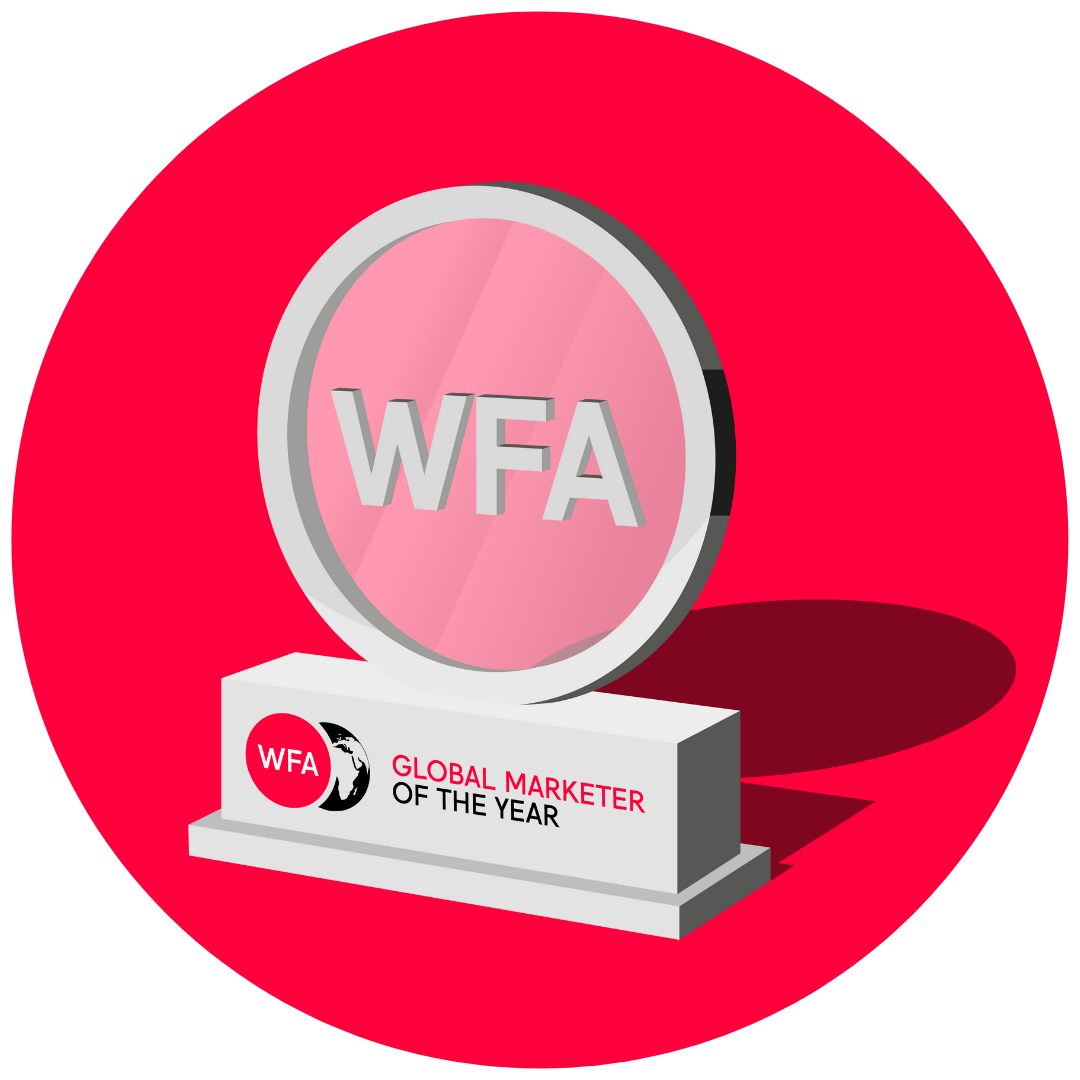Reasons to be optimistic: How the best work of 2022 can help marketers up their game in 2023
Guardian columnist and brand strategist, Arwa Mahdawi, takes a look at the lessons 2022 has taught marketers for the year ahead.
Share this post

Arwa Mahdawi, Guardian columnist and brand strategist.
Liquid Death…have you heard of it? I hadn’t until I saw a guy buy it in my local grocery store and immediately thought: ‘what the hell is that?’ I don’t, by the way, make a habit of scrutinizing and judging people’s grocery purchases but Liquid Death is hard to ignore. It’s canned water with heavy-metal style branding that makes it look a bit like a cheap lager teenagers might drink at a bus shelter. And then, of course, there’s the name. It got my attention.
It didn’t just get my attention: Contagious voted it the ‘Most Contagious’ brand of 2022. And for good reason: it is refreshingly different. A lot of work in 2022 has felt safe and same-y. “Based on the data set of ‘literally just my opinion’, I believe that this year has seen a nearly complete lack of visually iconic work,” Contagious managing partner Alex Jenkins said at this year’s Most Contagious conference. You can add my opinion to that data set too.
If 2022 felt same-y, 2023 is shaping up to be scary. I don’t need to tell you that we live in challenging times. I don’t need to tell you that much of the world is battling a cost of living crisis and it looks like we’re headed into a recession. So, I won’t tell you any of that. Let’s find some reasons to be cheerful, shall we? I’ve put together a short list of reasons to be optimistic in 2023, based on my favourite examples from the Most Contagious report. (Which is an excellent read, by the way, and I’m not just saying that because they’re my former employer.)
1. Constraint breeds creativity
A big budget doesn’t always lead to a big idea. Rather, it can make you lazy. Necessity, on the other hand, is the mother of invention. Look at Liquid Death, for example. It was started by a former creative director, Mike Cessario, who was frustrated by how tame and unimaginative health brands were. He decided he was going to sell water because it’s highly brand-driven and its marketing is all the same. The only problem is that he didn’t have the funds needed to break into the category and couldn’t find investors. So, instead, he spent $5,000 making an advert for a product that doesn’t exist. The Deadliest Stuff on Earth spot is hilarious: it features a woman waterboarding a man and explaining, deadpan, that water is the deadliest stuff on earth (also hilarious to me is the fact that it is clearly marketed at guys and, apparently, convincing men that bottled water is a girly drink). After the ad went viral, Liquid Death got interest from retailers which, in turn, got it interest from investors. It is now sold in over 16,000 stores across the US.
Liquid Death, by former creative director Mike Cessario.
2. A recession means we might stop hearing people drone on about the metaverse
A lot of people talked about the ‘metaverse’ in 2022 but did you actually see any really great metaverse work? There were, however, plenty of expensive embarrassments. The European Union, for example, spent €387,000 throwing a beach party in the metaverse. The point was to educate non-politically engaged 18–35-year-olds on the EU. Unfortunately only five people showed up. Four of them left very quickly leaving a journalist the sole person at the party. If there’s a silver lining about a recession it’s that people might be less eager to waste money doing completely nonsensical things in the metaverse (which is still basically just a VR video game at this point) and come up with a proper idea instead. Can you tell I have a lot of emotions about the metaverse?! To be clear: I’m not saying that brands should stay away from experimenting with new technology. Just that novelty for novelty’s sake should generally be avoided. Heinz’s A.I. Ketchup campaign, one of Contagious’s Most Contagious Campaigns of the Year, is a great example of how to experiment with tech in a meaningful way. In 2021 Heinz asked people across five continents to “draw ketchup”: the majority of them drew Heinz, drumming home just how iconic the brand is. In 2022, Heinz built on that campaign by asking AI to “draw ketchup”. Turns out that AI also thinks of Heinz when it thinks of ketchup.
3. There are plenty of opportunities to help people: seize them
Brands always talk about how they want to add value to people’s lives. Well, guess what? Hard times mean there are opportunities aplenty to add real value. Backup Ukraine, another Contagious campaign of the year, is one example. Russia’s invasion of Ukraine hasn’t just resulted in lost lives, it’s threatened Ukraine’s cultural heritage. So the Danish Unesco National Commission, Blue Shield Denmark, and Virtue Worldwide teamed up with a 3D scanning app called Polycam to create a tool that would let people scan their surroundings with a phone and upload it to the cloud: if buildings were destroyed, there would be a digital replica of them in the cloud that could help with reconstruction. It’s a great example of a campaign that adds real value and gives people hope. Things are hard for a lot of people at the moment. As Craig Mawdsley writes in the Most Contagious report: “Work out what you can do to help. Not because it’s a genius move to drive brand love, or that helping people is proven to be a high ROI business strategy. No, mainly because people will suffer hardship, illness and premature death due to rising costs and a failing economy, and you are a human being.”
The Backup Ukraine campaign shows that hard times mean there are opportunities aplenty to add real value.
3a. Finally, build your own Venice
(Everyone knows lists should have three things and not four). One of my favourite nuggets of knowledge from this year’s Most Contagious was Alex Jenkins’s comments on Venice, which was founded by refugees from Rome. “They took a cluster of swampy, mosquito-ridden islands in the middle of marshland and turned it into one of the greatest cities the world has ever seen. It’s built on crap and, 1,500 years later, it’s still one of the most remarkable cities on the planet.” So there you go. Things may look crap at the moment, but you can build something great on top of it.



